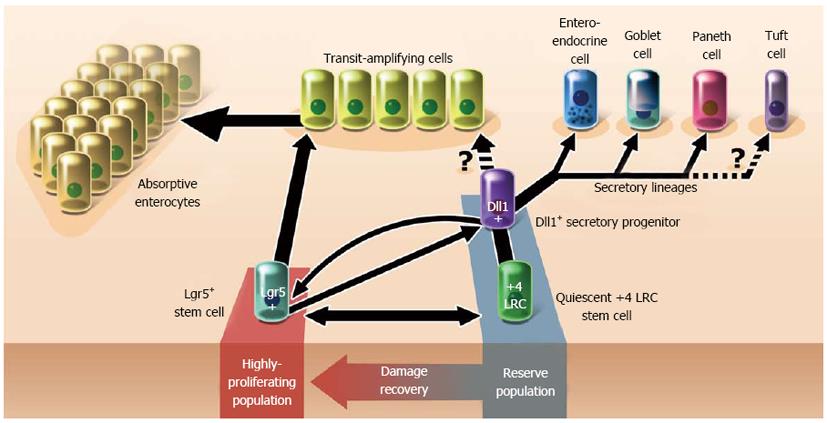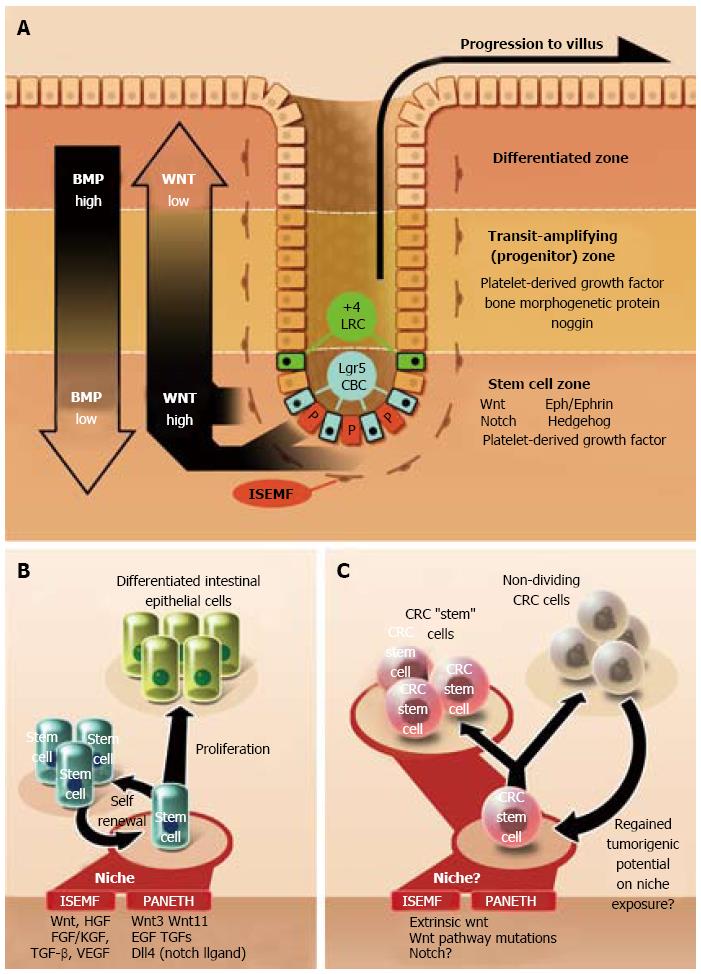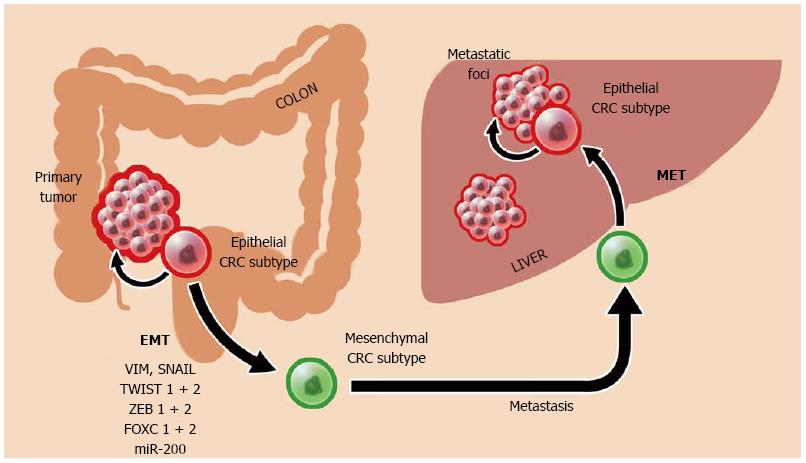Copyright
©2014 Baishideng Publishing Group Co.
World J Gastroenterol. Feb 28, 2014; 20(8): 1898-1909
Published online Feb 28, 2014. doi: 10.3748/wjg.v20.i8.1898
Published online Feb 28, 2014. doi: 10.3748/wjg.v20.i8.1898
Figure 1 Origin and development of normal intestinal stem cells.
Lgr5+ CBCs and +4 LRCs coexist in the crypt. Each stem cell is fully multipotent. Lgr5+ cells likely maintain intestinal homeostasis under normal conditions. Following intestinal injury, the reserve population comprised of +4 LRCs and Dll1+ secretory progenitors restore both the epithelium and Lgr5+ CBCs. Tuft cells are Bmi1+ cells that may be synonymous with or descendants of +4 LRCs. CRC: Colorectal cancer; CBCs: Crypt base columnar cells; LRCs: Label-retaining intestinal stem cells.
Figure 2 Niche regulation of the normal intestinal epithelium and colorectal cancer.
A: Intestinal subepithelial myofibroblasts (ISEMFs) surround the crypt. Along with paneth cells (P), they supply the stem cell niche with trophic signals. Developing intestinal cells migrate upwards towards the villus apex, during which time they are subject to niches among the various strata in the crypt. B: Redundant mediators expressed by ISEMFs and Paneth cells contribute to the preservation of the stem cell compartment and normal intestinal proliferation. C: The local niche immediately around CRC likely fosters tumor growth by activating stem cell pathways. CRC cells lacking proliferative ability may re-awaken upon re-entry into the niche. CRC: Colorectal cancer; BMP: Basic metabolic panel.
Figure 3 Epithelial-mesenchymal transition and mesenchymal-epithelial transition in colorectal cancer.
In a primary tumor, CRC stem cells exist in a stationary phase that promotes growth. EMT transition to a migratory mesenchymal phase deactivates proliferative genes and cell adhesion molecules, generally allowing for metastatic dissemination to occur. Once at distant targets, mesenchymal cells transition back to the stationary phase via MET thereby resuming tumor expansion. EMT: Epithelial-mesenchymal transition; MET: Mesenchymal-epithelial transition; CRC: Colorectal cancer.
- Citation: Ong BA, Vega KJ, Houchen CW. Intestinal stem cells and the colorectal cancer microenvironment. World J Gastroenterol 2014; 20(8): 1898-1909
- URL: https://www.wjgnet.com/1007-9327/full/v20/i8/1898.htm
- DOI: https://dx.doi.org/10.3748/wjg.v20.i8.1898











